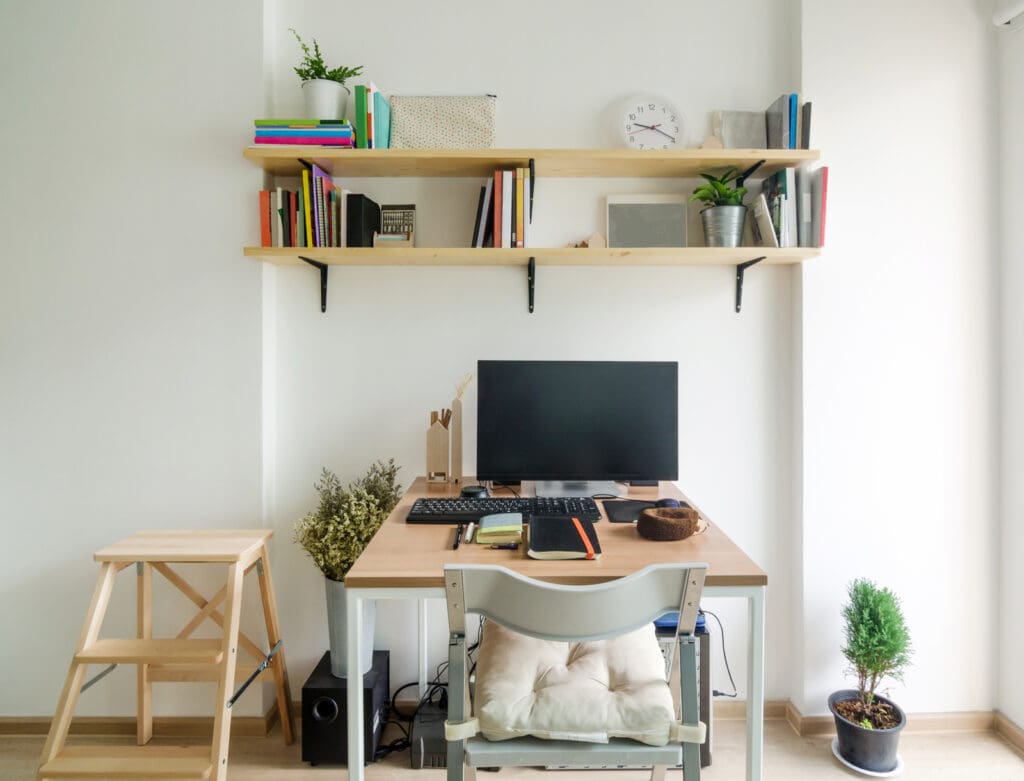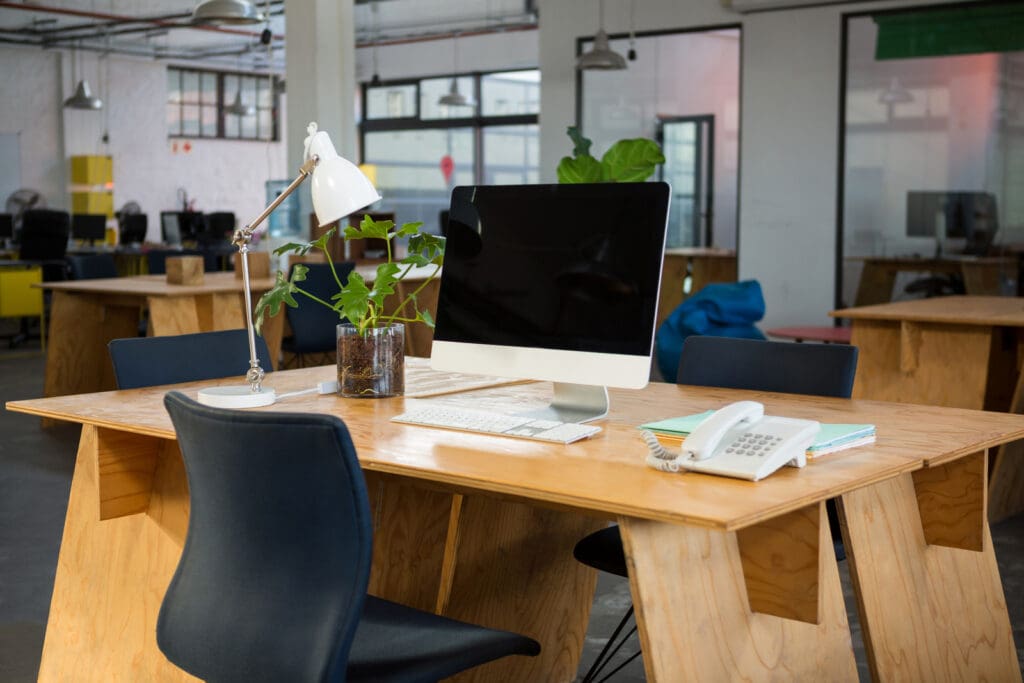Can you imagine a workplace where your commute is measured in steps, not miles? Where the coffee and breakfast comes straight from your personal kitchen, just the way you like it? More importantly, when you are done for the day, you get to see your loved ones and relax in the comfort of your home, in a matter of minutes. For most people, this would sound like paradise. Welcome to the concept of a home office.

A home office, as the name suggests, is a room in your house where you can set up equipment for work-related tasks. It typically has a desk, chair, computer and other tools like printer, copier, stationery, etc. People who want a dedicated and organized area for work, especially remote workers or small entrepreneurs, find home office a viable option.
In 2023, the Statista Research Department published a report stating that in 2019, 73% of people said that working from home helped them strike better work life balance and improved their overall wellbeing. In the age of remote work and flexible schedules, home offices are no longer just mere rooms with desks. People who have a home office arrangement see it as an opportunity to unlock immense creative potential within themselves.
As the lines between professional and personal life continue to blur, the allure of crafting a workspace within the familiar confines of our homes has never been stronger. In this article, we will explore how to design a workspace that not only enhances efficiency but also adds a touch of personal flair to your professional endeavors.
What is the ideal location for a home office?
A home office can be set up in your living room, kitchen table, garage, loft or attic, in some outdoor structure like a studio, or even in the balcony. Every house has a different layout, so you have to think about which space in your house is suitable for your needs. Here are a few things to be considered.
Natural light
Exposure to natural daylight helps our bodies align our circadian rhythm, i.e. our cycle of sleep and wakefulness, to the day. Unless you are working night shifts, pay attention to this aspect of the room. A 2016 study found that sunlight is the most crucial source of light for the human body, and it cannot be replaced by electric light because of its unique spectral features.

Moreover, early sunlight is also a crucial source of Vitamin D, which contributes to bone strength. If the room is not well lit even when it is bright outside, it may create a sense of lethargy and monotony. Even one window that is large enough to light up the room can bring about a positive change in your work environment.
Temperature
It is difficult to focus if the room is cold and your body is shivering. A garage without space heating, for example, would be a bad option for a home office. Colder climates make it difficult to function without proper insulation and heating. If you have a space heater or thermostat, it is good for maintaining optimal temperature control.
Sound
Look for a quiet space where you won’t be disturbed by loud sounds, like traffic, neighbors, or household activities. Kitchens and living rooms are usually busy busy areas; opt for quieter rooms like a spare bedroom or a corner of your bedroom. If possible, use noise-cancelling headphones or add soft furnishings like rugs and curtains to absorb sound. A peaceful environment helps you focus on your work and boosts productivity.
Personalize!
Add elements that reflect your personality, like photographs of your loved ones, personalized keychains, bookmarks, artwork, etc. Arrange your desk and furniture to suit your workflow and make the space comfortable.

Buy shelves, baskets and file organizers to make the space tidy and neat. You may keep live plants to beautify the room. Night lamps will help you pull off all-nighters when you are working especially hard. Add shelves, baskets or file organizers to keep things clean and tidy.
Home office and tax deduction
As of 2023, home office tax deductions apply to freelancers and small business owners who are self employed. Hence they are only eligible if the work they do at home is unrelated to their status as an employee in another organization.

If you use any part of your home, or a separate structure on your residential property as your primary place of conducting business, on a regular and exclusive basis, you can claim deduction on your tax returns. As long as they meet certain criteria, you can deduct utilities like natural gas, electricity, water and garbage collection, housekeeping, internet, etc. are deductible.
What is the simplified square footage method
Earlier, the Internal Revenue Service in the USA required a standard method of calculating deductibles. But considering that it was complicated to understand for small business owners, they proposed a simpler method in the Revenue Procedure 2013-13, to calculate the deductible amount in cases where a home space is used for business.

In this method, you need to first calculate your allowable footage, i.e., the total square footage of space occupied by your home office, or business related activity. Then multiply this amount by the prescribed rate of $5 per square foot. This amount is then multiplied by a fraction- the number of hours you worked divided by the total number of hours in the whole year.
If you have shifted your home office to another location in the house, or you tend frequently switch spaces for work, you have to calculate the average square feet of space occupied for business related activities. In that case, you can only consider months where you worked for 15 days or more, and you cannot count more than 300 square feet each month.
How does home office location affect real estate value?
Having adequate space for a home office might improve the value of your property in the real estate market. As long as you are not violating any zoning laws, having a designated space for a home office might make the house attractive for prospective buyers. Of course, who would deny a convenient work corner in their home, especially in the wake of remote and hybrid work opportunities?
In terms of location, accessibility from the main living areas, ample natural light, quiet environment, pleasant views, flexible use spaces, an opening into an outdoor space, proximity to common use areas like kitchen and bathroom, and scope for expansion are certain features that will add to the real estate value of your home office.
If you are a freelancer or a small business owner thinking of setting up a home office, the guidelines in this article will help you see the bigger picture in terms of finances, legal aspects and practicalities. Thorough research and smart problem solving are the key to making good decisions for your home office and your business!


GIPHY App Key not set. Please check settings